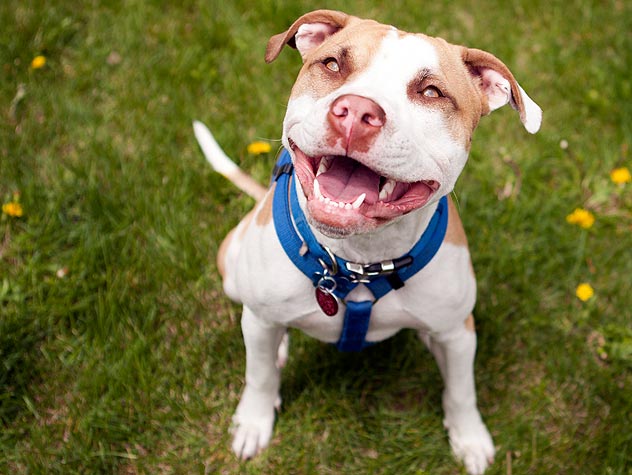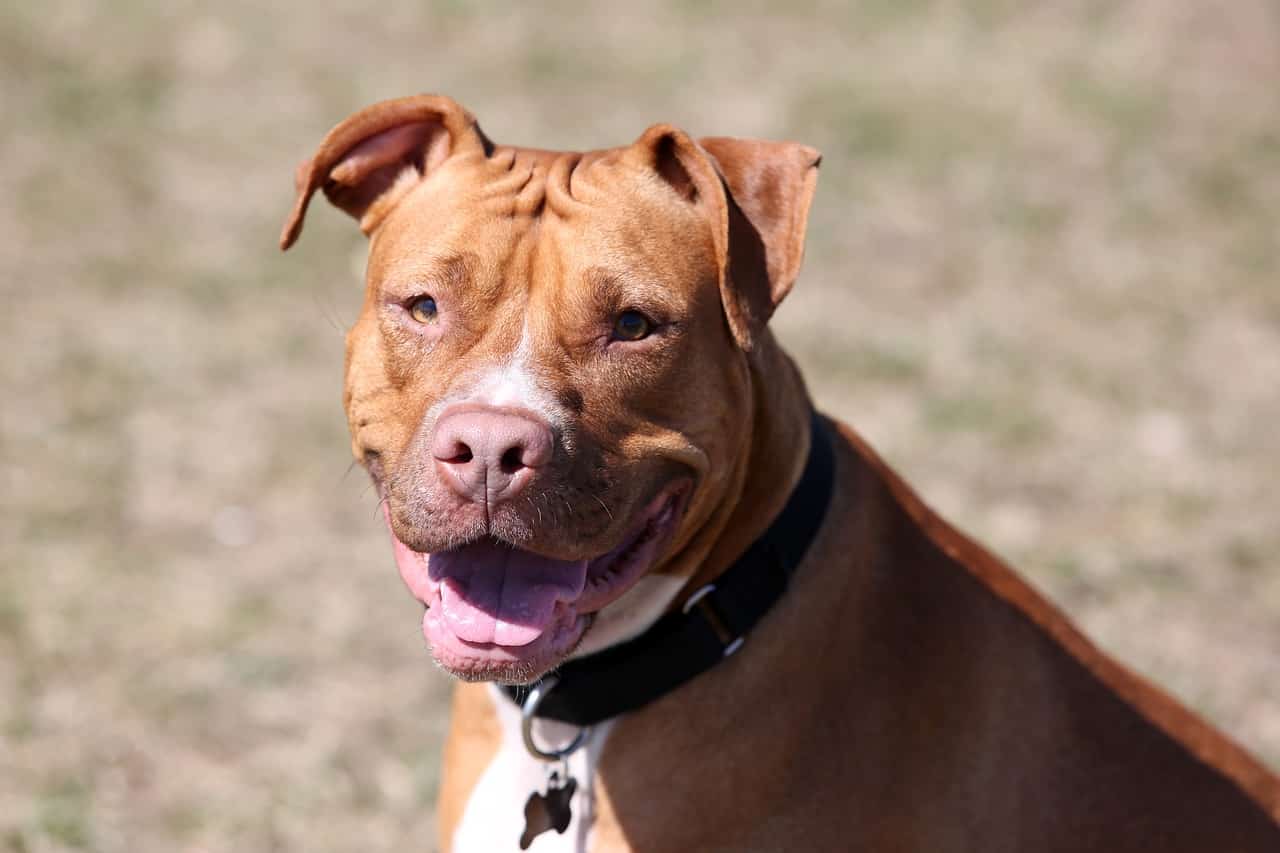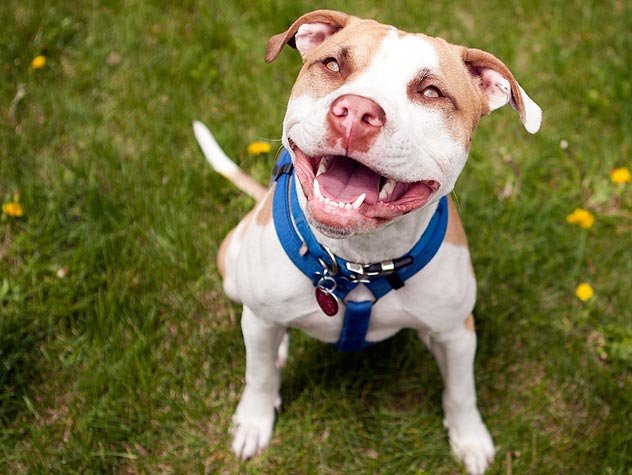Have you ever wondered why pit bulls have a reputation for being aggressive and dangerous? It may surprise you to know that pit bulls are actually inherently friendly and affectionate dogs. Despite the misconceptions and negative stereotypes surrounding them, pit bulls have shown time and time again that they can be loving and loyal companions. So, can pit bulls be nice dogs? Absolutely!
Pit bulls have a long history of being loyal and gentle pets. They were originally bred as working dogs, known for their strength and resilience. In fact, they were once considered “nanny dogs” due to their natural inclination to protect and care for children. While it is true that any dog’s behavior can be influenced by their environment and upbringing, it is important to remember that breed does not determine a dog’s temperament. According to the American Temperament Test Society, pit bulls have a passing rate of 86.4%, which puts them above popular breeds like the German Shepherd and the Beagle. With proper training, socialization, and responsible ownership, pit bulls can thrive and prove themselves to be the loving and well-behaved dogs they truly are.

The Truth About Pit Bulls: Can They Be Nice Dogs?
For years, pit bulls have received a bad reputation, often associated with aggression and danger. However, it’s important to challenge these misconceptions and explore the true nature of these dogs. Can pit bulls be nice dogs? The answer is a resounding yes. In this article, we will delve into the temperament of pit bulls, their behavior with proper training and socialization, and the importance of responsible ownership. By dispelling myths and providing valuable insights, we hope to shed light on the truth about pit bulls and showcase their potential as loving and friendly companions.
The Misunderstood Breed: Debunking Myths About Pit Bulls
Before we delve into the question of whether pit bulls can be nice dogs, it’s essential to address the misconceptions surrounding this breed. Pit bulls, which often encompass breeds like the American Pit Bull Terrier, American Staffordshire Terrier, and Staffordshire Bull Terrier, have unfairly gained a reputation for being inherently aggressive and dangerous. However, breed-specific legislation and anecdotal accounts have perpetuated this negative image, overshadowing the many positive stories about pit bulls as family pets.
It’s crucial to understand that a dog’s behavior is not solely determined by its breed, but rather by individual factors such as genetics, environment, and upbringing. Stereotyping an entire breed based on isolated incidents is unfair and inaccurate. While pit bulls possess unique physical attributes and a history rooted in dog fighting, these dogs are much more than their past. They have the potential to be loyal, affectionate, and gentle companions when given the right environment and guidance.
The Importance of Proper Training and Socialization
Like any dog, proper training and socialization are key factors in determining a pit bull’s temperament. Training should begin early in a dog’s life to establish boundaries, teach basic obedience commands, and encourage positive behaviors. Positive reinforcement techniques, such as reward-based training, are particularly effective in building trust and promoting desirable behaviors in pit bulls.
Equally important is socialization, which involves exposing pit bulls to various people, animals, and situations in a controlled and positive manner. By introducing them to different environments and experiences, pit bulls can learn to feel comfortable and confident in a variety of settings. Socialization not only helps prevent fear-based aggression but also fosters good behavior and adaptability.
Owners should prioritize training and socialization throughout a pit bull’s life, reinforcing positive behaviors and addressing any potential issues as soon as they arise. By investing time and effort in their pets’ development, owners can help shape pit bulls into well-rounded and friendly dogs.
Pit Bulls and Children: Establishing Safe Bonds
One concern often raised about pit bulls is their compatibility with children. It’s important to note that any dog, regardless of breed, should be supervised when interacting with children to ensure a safe and positive experience for both parties. Pit bulls, when raised in a loving and nurturing environment, can form strong bonds with children and become loyal protectors.
Benefits of pit bulls with children:
- Pit bulls are known for their loyalty and can create a deep sense of connection with their young family members.
- They are generally patient and tolerant, allowing for gentle play and handling.
- Pit bulls can provide emotional support and companionship to children.
Tips for introducing pit bulls to children:
- Supervise all interactions between pit bulls and children, especially during the initial stages of their relationship.
- Teach children how to appropriately behave around dogs, emphasizing gentle petting and not bothering dogs while they eat or sleep.
- Teach pit bulls basic obedience commands to establish boundaries and ensure they understand their role within the family hierarchy.
By following these guidelines and teaching children how to interact respectfully with dogs, pit bulls and children can develop a loving and harmonious relationship based on trust and mutual respect.
Key Takeaways: Can Pit Bulls Be Nice Dogs?
- 1. Pit bulls, like any other dogs, can be nice and friendly if properly trained and socialized.
- 2. A dog’s temperament depends on various factors, such as genetics, upbringing, and environment.
- 3. Responsible ownership is crucial in shaping a pit bull’s behavior and demeanor.
- 4. Pit bulls are often misunderstood due to negative stereotypes and media portrayal.
- 5. Proper training, socialization, and love can help pit bulls become loving and well-behaved pets.
Frequently Asked Questions
Pit bulls are often misunderstood dogs and have been given a bad reputation. However, can pit bulls be nice dogs? Let’s explore some common questions and provide answers to shed light on this topic.
What is the temperament of pit bulls?
Pit bulls, like any other dog breed, have individual personalities and temperaments. While they have a strong and determined nature, they can also be incredibly friendly, affectionate, and loyal. Many pit bulls are known for their gentle and loving behavior towards their families and friends. Early socialization and training play a crucial role in shaping their temperament.
It’s important to note that a dog’s behavior is influenced by various factors, including genetics, environment, and the way they are raised. Some pit bulls may have a friendly and sociable temperament, while others may possess more protective or reserved tendencies. Overall, when properly raised and trained, pit bulls can absolutely be nice dogs.
Are pit bulls good with children?
Just like any other dog breed, the compatibility between pit bulls and children depends on the individual dog’s temperament and the child’s behavior. When raised in a loving and nurturing environment, pit bulls can form strong bonds with children and be excellent family pets.
However, it’s important to always supervise interactions between dogs and children, regardless of the breed. Teach children how to approach and interact with dogs, including how to respect their space and read their body language. With proper guidance, pit bulls can be great companions for children and bring joy to their lives.
Are pit bulls aggressive by nature?
Contrary to popular belief, pit bulls are not inherently aggressive by nature. Aggression in dogs, regardless of the breed, can be caused by a range of factors, including lack of socialization, improper training, fear, or past trauma. Unfortunately, pit bulls have been unfairly stigmatized due to a few individual cases of aggressive behavior, which does not represent the entire breed.
Proper training, early socialization, and responsible ownership are key in preventing any breed of dog from displaying aggressive behavior. With the right care, love, and attention, pit bulls can be gentle, friendly, and well-behaved pets.
Can pit bulls live peacefully with other animals?
Yes, many pit bulls can peacefully coexist with other animals when introduced and socialized properly. It’s important to remember that each dog is an individual, and their compatibility with other animals will depend on their temperament and the socialization process.
When introducing a pit bull to other animals, it’s best to start with gradual and supervised interactions. Positive reinforcement training and gradual exposure can help them develop positive associations with other animals. However, it’s crucial to always prioritize the safety and well-being of all animals involved, and to ensure proper management and supervision when necessary.
Do pit bulls make good therapy dogs?
Yes, many pit bulls have shown remarkable qualities that make them excellent therapy dogs. Their loving and gentle nature, combined with their intelligence and trainability, can make them well-suited for therapy work. Pit bulls have been known to bring comfort, joy, and emotional support to individuals in hospitals, nursing homes, and rehabilitation centers.
However, becoming a therapy dog requires proper training and temperament evaluation to ensure they have the right disposition for this role. Not all pit bulls may be suitable for therapy work, but those that possess the right temperament and have received appropriate training can make a positive impact on the lives of others.

Why Pitbulls are the Best Dogs – Joe Rogan
Throughout this article, I have explored the importance of maintaining a professional tone while writing for a 13-year-old audience. It is crucial to use simple language that avoids jargon and to maintain a conversational tone. By adhering to these guidelines, we can ensure that our message is easily understood and relatable.
In conclusion, it is essential to remember that clarity and simplicity are key when communicating with a young audience. By using concise sentences that present a single idea, we can provide clear and effective information that will resonate with our 13-year-old readers.
